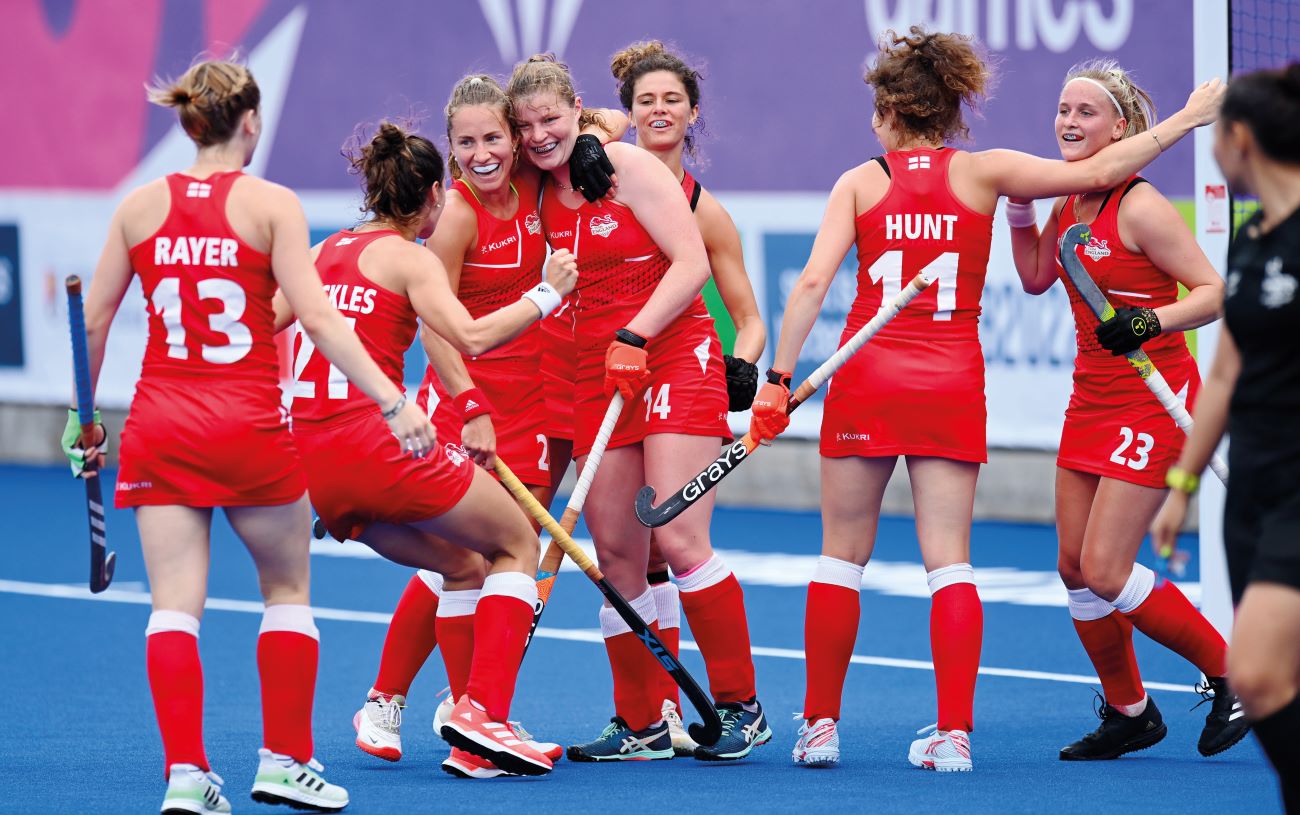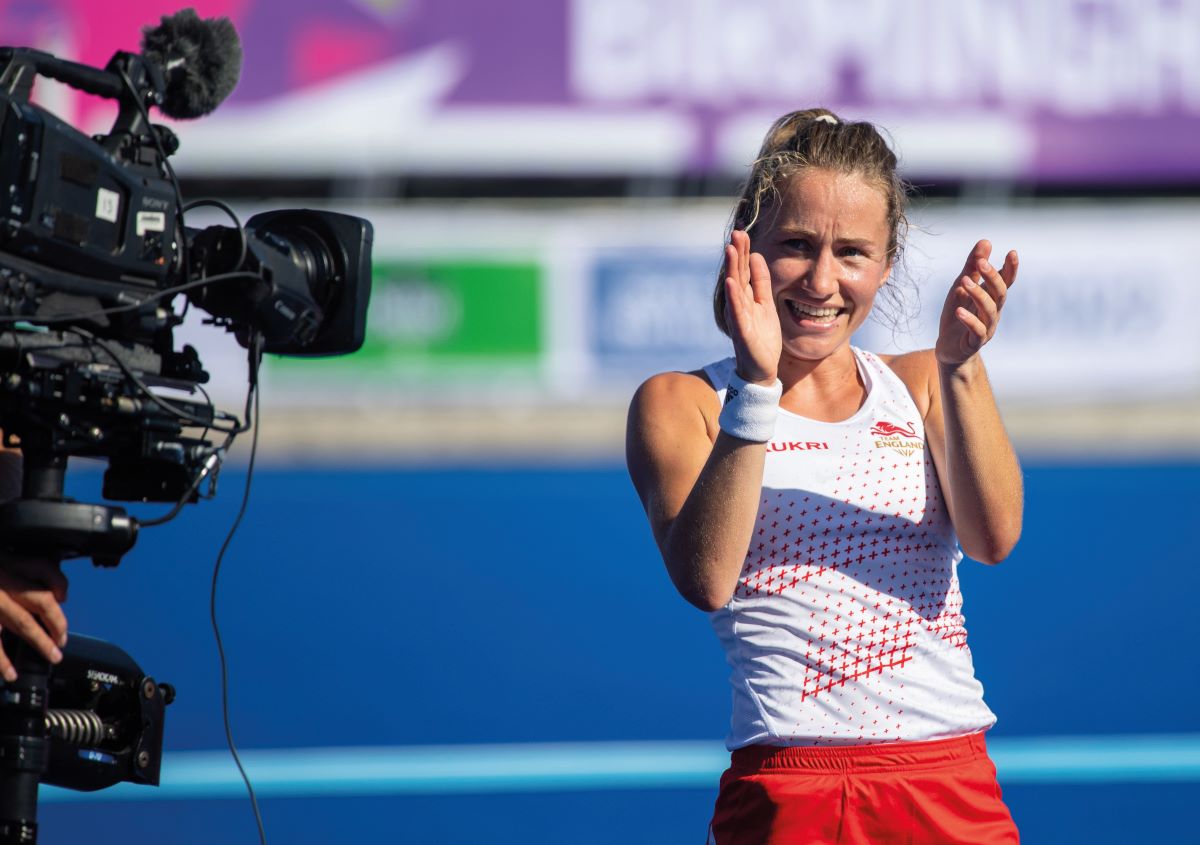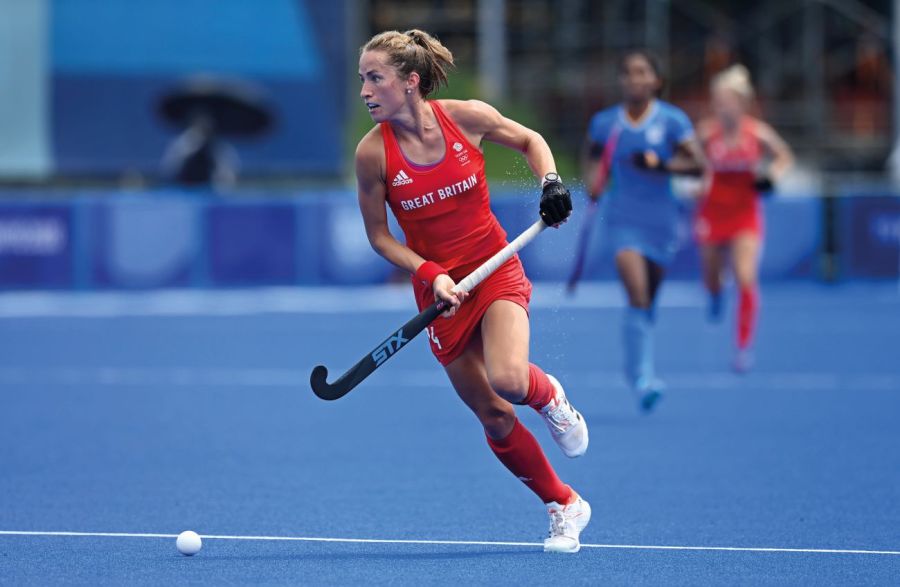We caught up with English International hockey field player, Shona McCallin MBE, to hear all about her typical training week, how she fuels her body, plus her greatest achievements to date…
Meet Shona McCallin MBE: English international field hockey player, Shona McCallin, plays as a midfielder for England and Great Britain. Since winning gold at the 2015 European Championships, she has competed in two Olympic Games, winning gold at the 2016 Rio Games and bronze at the 2020 Tokyo Games. Most recently, she won gold in the 2022 Commonwealth Games.
Related: Join our team: Why you should join a sports team
Shona McCallin, tell us about your hockey journey so far.
Shona McCallin: ‘I got into hockey when I was six. As a youngster, I had too much energy for my parents to deal with, so they sent me out to every sports club and holiday camp going, just to wear me out! I started playing at my local hockey club on Sunday mornings and took to it quickly. I went on to have a rapid ascent through the ranks, progressing from club level to county level to regional level before I was selected for the England Under-16 team, then the Under-18s and the Under-21s, before being selected for the Senior team.
‘Not everyone has that linear a journey. Missing out on selection can be the end of some people’s career, but for others, it gives them a bit of a kick to push on. I have teammates who weren’t selected for the Under-16 or Under-18 teams, yet they still have a Commonwealth Games gold medal around their necks. My message, whenever I go to speak to kids or young athletes, is that setbacks don’t define your career, it’s how you react to a setback that defines you.’
What does a typical week of training look like for you?
Shona McCallin: ‘We’re lucky to train full-time Monday to Friday thanks to funding from the National Lottery, although we have Wednesdays off to reset physically and mentally and pursue other interests, whether that’s working, studying or coaching.
‘Generally, each training day consists of a two-hour hockey session and a 75-minute gym session, alongside individual club commitments involving an evening training session once a week and a game at the weekend.
‘On top of that, we have lots of meetings covering tactics, training reviews, psychology, nutrition, physio slots and extra gym and hockey work, so it quickly turns into busy, full-on weeks. During a 60-minute international match, we can run anywhere between 5.5K to 7.5K, and, because hockey features rolling substitutes, it’s also very high intensity.
‘As a midfielder, I’ll probably play really hard for five minutes, come off for two minutes, then go back on for another five minutes before another quick rest. Our running speeds, distances and levels are monitored by GPS trackers in our sports bras, and that information is then analysed by our coaches to make sure that our output in training equals or goes beyond our match performances.
‘We need to be very agile to move side to side, forwards and backwards, and up and down to get in and out of low positions quickly. The quicker you are, the better, so that’s something I’m always striving to improve on.’
Related: Triathlete Kat Matthews shares her training advice

How important is strength training in hockey?
Shona McCallin: ‘Strength training helps us stay robust and injury-free. It also allows our bodies to manage the load they’re put through. Thursday gym sessions focus on speed, so it’s all about power, plyometrics, acceleration and explosiveness. Other sessions focus on more traditional strength training.
‘After a 10-minute warm-up, we’ll do three-to-four sets of a major compound lift first – such as a squat, a Bulgarian split squat, hip thrusters or a trap bar deadlift – to hit lots of muscles in one go. Then, we’ll do supersets to target the hamstrings, hips, glutes, calves and the upper body, before finishing with a core circuit of three different exercises.’
What’s your approach to food and nutrition?
Shona McCallin: ‘Over the years, I’ve learnt the importance of eating right to fuel my training, but it’s important to understand we’re still human. There’s a balance to it, and going too far with anything, including nutrition, isn’t good for you. I adopt the 80/20 rule, so 80 per cent of what I eat and drink is good, and 20 per cent is about not feeling like a robot athlete.
‘I’ve been lucky to work with some amazing nutritionists, including Emma Gardener, who now works with England Cricket. She helped me understand what I need to eat to perform well in different types of training sessions, and the importance of nutrition for recovery after training.’
Related: Pre-workout nutrition for women: what to eat & when
How do you support your body’s recovery after training or competing?
Shona McCallin: ‘The body can do wonderful things. During the Commonwealth Games, we had six games in nine days, but we had the ability to push much further than we thought. The mind is one half of it, but physical recovery is just as important. For me, sleep is essential, as is getting the right hydration and nutrition, whether that’s in the form of a protein shake or a decent meal, within that crucial 30-minute window after a game.
‘With one physio between 18 players on a match day, it’s not always possible to see one after a match. But we’re lucky to have access to recovery pumps [air compression boots] and I also use a Compex Muscle Stimulator and a vibrating foam roller to flush out toxins.’

What’s in your essential hockey kit bag?
Shona McCallin: ‘I’ve used an STX Hockey Stick since 2013. I’ve also been lucky enough to visit the factory in America and see how they are made, which was amazing. I’ve also been a loyal supporter of OPRO Mouthguards for more than 20 years, ever since my mum bought me one when I started to get my adult teeth.
‘An OPRO Mouthguard is an absolute must for me: one, because they fit perfectly, and two, because they protect my teeth. I was always told your teeth never grow back so you need to look after them. Because I sweat a lot, I always wear sweatbands on my wrists, too.’
What’s your greatest achievement to date?
Shona McCallin: ‘I think the combination of winning three tournaments is pretty special. It’s quite surreal to say I’m now an Olympic, European and Commonwealth Games champion!
‘Being involved in hockey for the past seven years has been so special. Not only in terms of being successful on the pitch and winning medals, but also because of what we’ve done off the pitch in terms of being role models, going out to schools and clubs, and making ourselves visible and reachable to people.’
OPRO is the world’s leading mouthguard provider. Find out more at opro.com.
Words: Joanna Ebsworth | Photography: World Sports Pics & England Hockey







